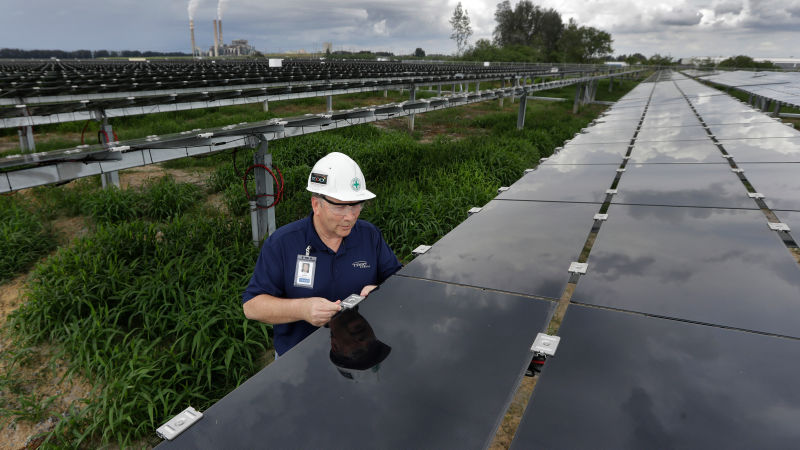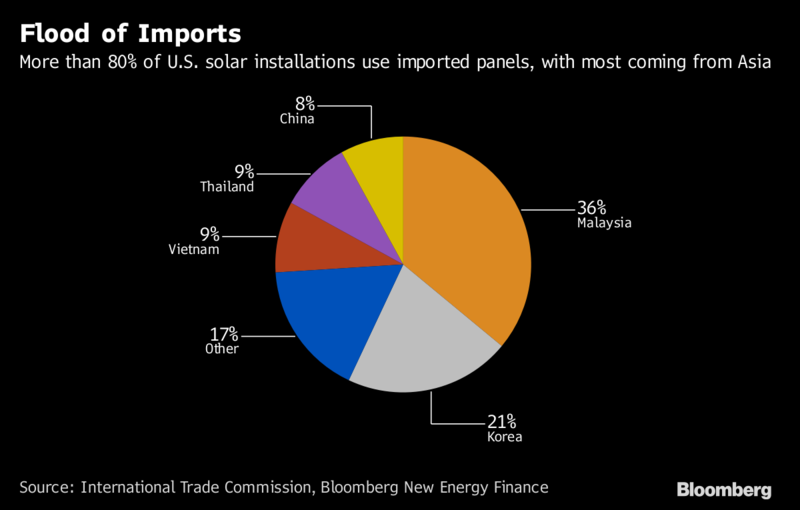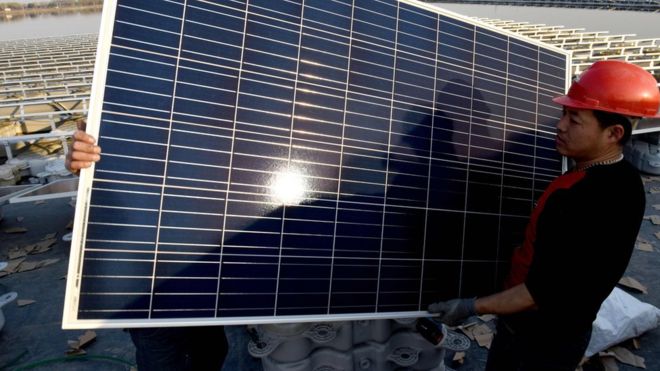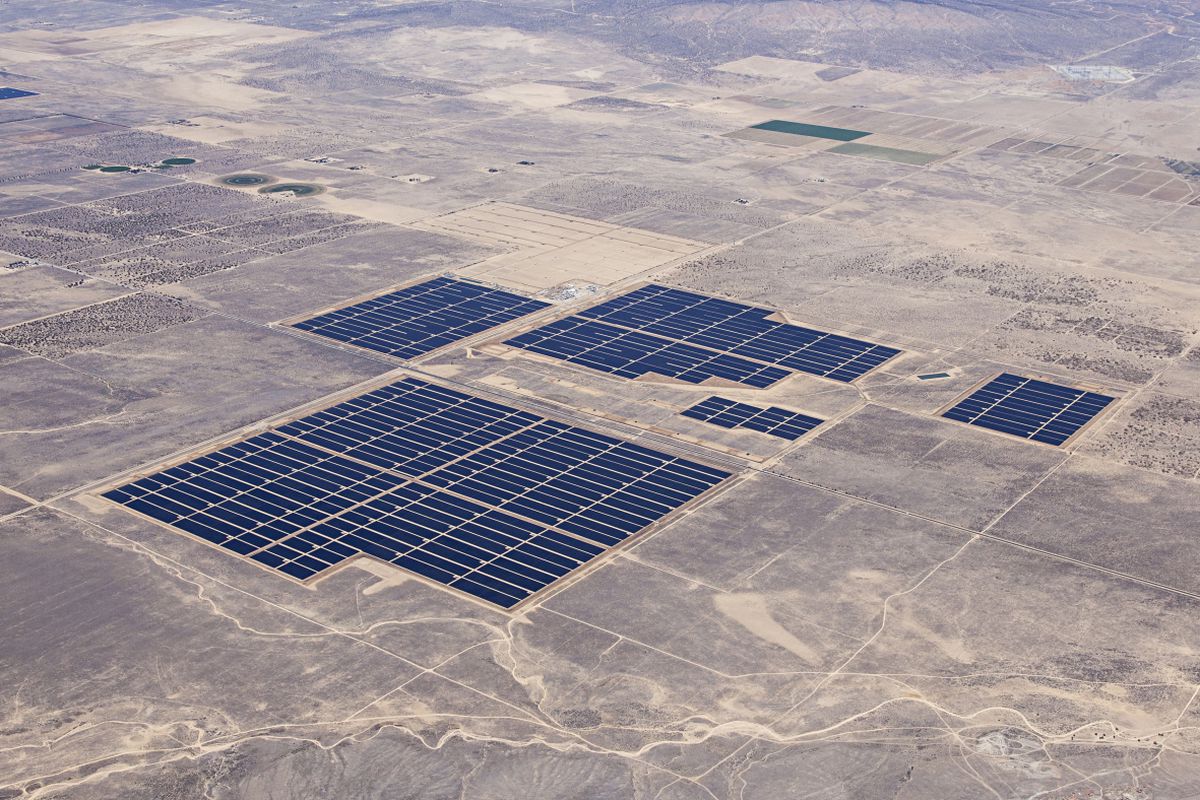US Introduces Hefty Tax On Imported Solar Panels And Most Of Them Come From Malaysia
The new tariffs were imposed to protect US manufacturers from foreign competition.
The US government has decided to impose new hefty tariffs on imported solar energy components
The Trump administration announced on Monday that imported solar energy cells and panels will be subjected to steep tariffs at a time when solar is the fastest-growing source of new energy.
The move has been described as a "protectionist measure" and a demonstration of President Donald Trump's commitment to his "America First" agenda, to protect domestic American manufacturers that were being hurt by cheaper foreign imports.
It was reported that the decision was made based on the US International Trade Commission’s (ITC) recommendation as China has been subsidising its own solar manufacturers via cheap loans and subsidies. These cheap solar panels imports were said to have made their way into the US market and local players have not been able to compete.
Malaysia is the biggest exporter of solar panels to the US
Bloomberg reported that more than 80% US solar installations use imported panels which are made abroad, with most coming from Malaysia (36%) and South Korea (21%).
Under the new ruling, the first 2.5 gigawatts of imported solar cells will be exempted from the tariff annually but a 30% tariff will be imposed after the quota is exhausted. The tariff will gradually drop to 15% within four years.
The tariffs are intended to level a global playing field for those domestic manufacturers by raising the costs of cheap imports, especially those from Asia.
1. Other foreign countries have slammed the Trump administration for the trade measure
While the implementation of the new tariffs are welcomed by the companies that have pushed for them, China and South Korea both have criticised the move.
CNN reported the Chinese Commerce Ministry, who has expressed strong dissatisfaction, as saying that the move "aggravates the global trade environment".
On the other hand, South Korean Trade Minister Kim Hyun-chong called Trump's decision "excessive and a clear violation" of World Trade Organization (WTO) rules.
2. Some manufacturers could possibly get exclusions
"Two key exclusions with respect to technology and certain countries (Canada/Singapore, among others) were included as part of the (initial) recommendation. The status of whether these exclusions will be in focus in the coming days," leading global investment firm Goldman Sachs said, as reported by Reuters.
Back in October, ITC recommended that Trump excluded Canada, Singapore and several other US free-trade partners from the tariffs.
"The majority of imported panels come from Malaysia, Vietnam and other Asian nations not covered by free-trade deals," Bloomberg reported then.
3. The tariffs could cost more than 20,000 jobs for Americans in 2018
"The decision effectively will cause the loss of roughly 23,000 American jobs this year, including many in manufacturing, and it will result in the delay or cancellation of billions of dollars in solar investments," Solar Energy Industries Association (SEIA) said in a statement following the announcement by the Trump administration.
The trade restriction is likely to benefit manufacturers but will be costly for companies that have decided to focus on installation.
Vox reported that the US solar industry employs between 260,000 and 374,000 workers. Out of this number only 38,000 is in manufacturing while the bulk of the remainder are working in installation.
4. The move has also drawn criticism from environmentalists
They have lashed out over the move as it would make solar panels more expensive and thus discourage their use. This could possibly stifle the current solar boom, and is a setback in the development of renewable energy in the country.
"If Trump really wants to put America first, he should reduce our reliance on polluting energy sources that fuel climate change.
"Instead, this profoundly political move will make solar power more expensive for everyday Americans while propping up two failing, foreign-owned companies," Howard Crystal, a senior attorney with the Center for Biological Diversity reportedly said.
5. The 30% rate is lower than what was recommended by the ITC
Last October, the ITC suggested that tariffs on imported solar panels to be as much as 35%.
Two manufacturing firms, SolarWorld Americas Inc. and Suniva Inc., had earlier called on Trump to impose a 50% tariff - the highest allowed under law - "to save the US solar industry".




